Spoiler alert: the final image of John Fulljames’s production of Monteverdi’s The Return of Ulysses at the Roundhouse is haunting. Ulysses (Roderick Williams) and Penelope (Christine Rice) stand facing each other at last, arms outstretched. But Penelope is on terra firma. Ulysses stands on the revolving walkway that has served as the stage throughout most of the evening. And though Monteverdi’s music has found stillness, the stage continues to revolve, carrying him away from his beloved — boats against the current, borne back ceaselessly into the past.
Or something. Like many of this production’s most striking ideas, it’s poetic in the moment, but doesn’t really work once you step back. A metaphor for the alienating effect of war and exile? That might explain why Telemachus is huddled nearby, apparently shell-shocked. But throughout the show, in Samuel Boden’s brightly sung performance, he’s been the embodiment of sunny assurance, striding about bare-chested in a blond wig as he gives his mother far too much information about Helen of Troy. A community chorus sings with vigour, dressed in headscarves and blankets. Fulljames suggests that they’re refugees, and Penelope and Melantho (Francesca Chiejina) distribute water to huddled masses who moments later are cheerfully dancing with the rapacious suitors. Talk about mixed messages. And of course, there’s that final image of estrangement, when everything in the music and the plot pulls towards blissful reunion.
But it’s handsomely done, and the Royal Opera has given careful thought to the basically insurmountable problems of opera in the round. As the outer walkway revolves, so the orchestra, placed centrally, turns slowly in the opposite direction. Nods to the venue’s circus heritage — balloons representing Eumaeus’s sheep burst with a comical bleat, and Minerva (Catherine Carby) and Telemachus whizz round on a tandem — nicely pointed up the moments of humour in Monteverdi’s light-footed, endlessly shifting emotional continuum. Some singers appeared to be wearing microphones, but they didn’t sound like it. The droll mock-heroics of Christopher Cowell’s translation (‘She stays inscrutable/ Her heart immutable’) were mostly audible without recourse to the surtitles, and it’s actually quite fun to hear the Northern line rumbling underneath.
The cast is splendid, too: eloquent voices, well-matched to character, whether Chiejina’s sparky Melantho, David Shipley’s resonant bass as the suitor Antinous, Mark Milhofer’s plaintive Eumaeus or Catherine Carby, radiant with authority as Minerva. Susan Bickley as the servant Eurycleia is pretty much the definition of luxury casting, and the quiet pathos of Stuart Jackson’s singing was a discomfiting contrast to his fat-suited buffoonery as Irus. Sadly, Christine Rice was indisposed and unable to sing; she mimed the role of Penelope, while Caitlin Hulcup sang the part with lovely shaded expression from amid the theorbos and cornetts of the orchestra.
More than ever, then, this was Ulysses’ show, and Roderick Williams combined clear, often impassioned singing with a charisma that made it plausible that he was a hero beloved of the Gods. Wiry and energetic in action, and achingly expressive in his final scenes with Penelope, he managed to look regal even when straddling a bald man in a fat suit. Supported by Christian Curnyn’s lyrical, subtly coloured conducting, his vocal performance at times approached chamber music. This Return of Ulysses is about travelling hopefully, rather than arriving. If it’s ultimately frustrating, there are still treasures along the way.
It’s clearly the season for site-specific operas, though a production of Britten’s Curlew River in the church of St Bartholomew the Great does at least begin with the advantage that Britten actually intended it to be performed in a church. A slightly damp atmosphere is written into its free-floating melodic lines, and the drama opens and closes with the all-male cast singing the plainchant ‘Te lucis ante terminum’ while vanishing into the shadows. That’s exactly what happened in this debut production by Ante Terminum, a new company who apparently love Curlew River so much that they’ve incorporated it into their name.
They placed the audience on either side of the nave, separated by a milk-white expanse of polythene sheet — the river itself, traversed by the performers over the piece’s 70-minute span. The cast wore black robes and pale make-up, and director Peter Thickett moved them deliberately around the space, so that when Richard Robbins’s Madwoman broke the pattern, shaking with emotion, the effect was powerful. But then, Curlew River is based on Noh theatre. It’s meant to be stylised. With fresh young voices, and some refined instrumental playing under Frederick Waxman, the music — and Britten’s sense of dramatic pace — did the rest. Well, almost: Ben Bevan’s gruff, rich-toned humanity as the Ferryman supplied the grit around which this little pearl of a production coalesced. Atmospheric and sensitively performed, its emotional impact was out of proportion to its scale. It’ll be interesting to see what Ante Terminum does next.
Got something to add? Join the discussion and comment below.
Get 10 issues for just $10
Subscribe to The Spectator Australia today for the next 10 magazine issues, plus full online access, for just $10.
You might disagree with half of it, but you’ll enjoy reading all of it. Try your first month for free, then just $2 a week for the remainder of your first year.

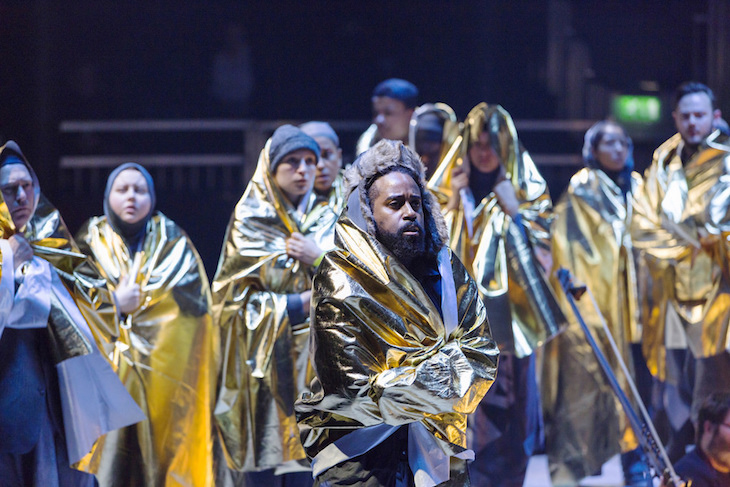

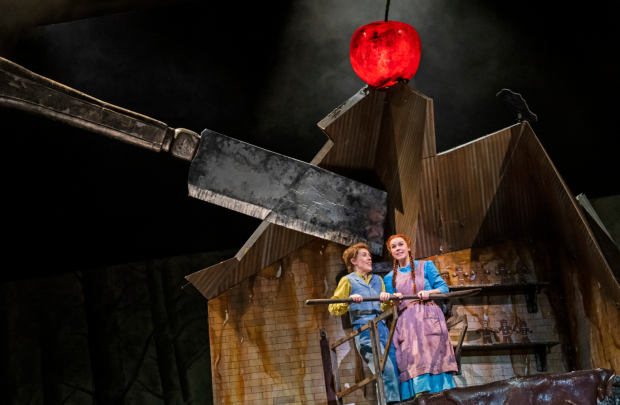
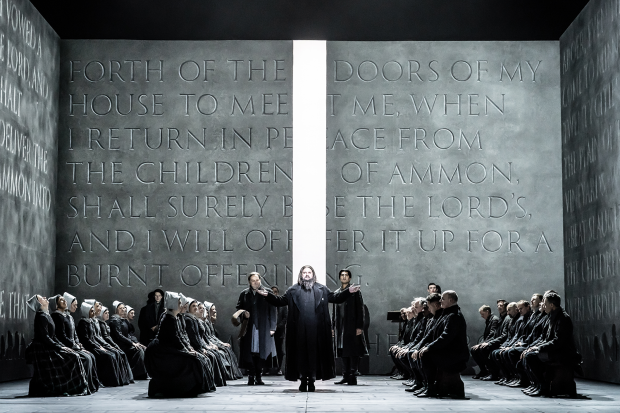
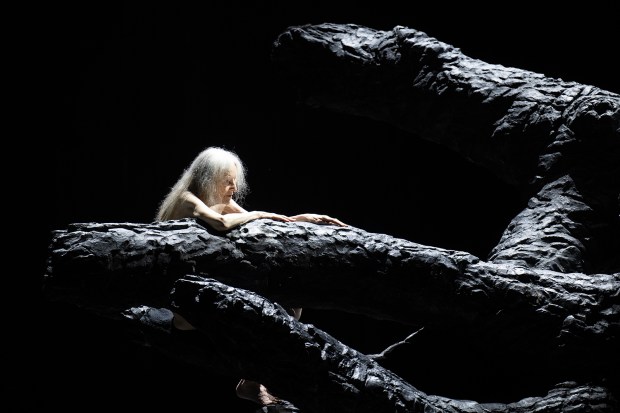
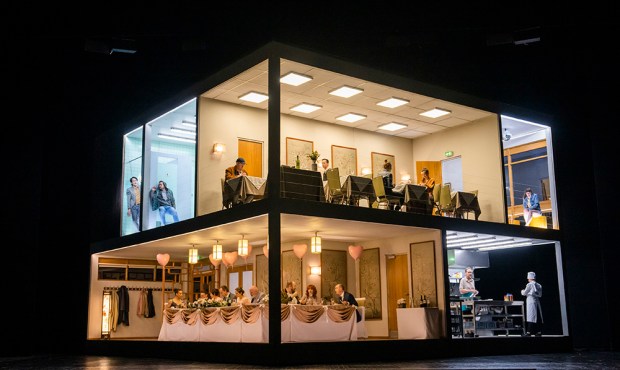
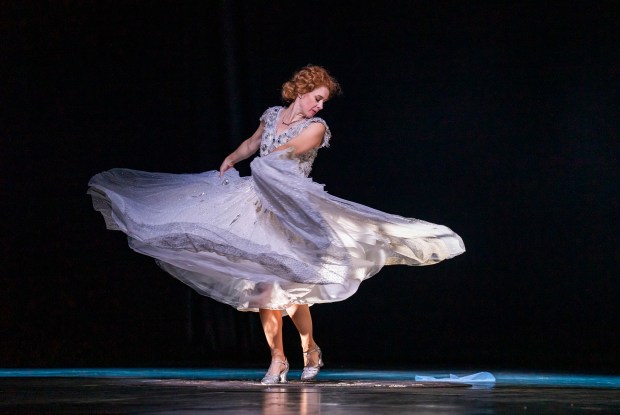






Comments
Don't miss out
Join the conversation with other Spectator Australia readers. Subscribe to leave a comment.
SUBSCRIBEAlready a subscriber? Log in